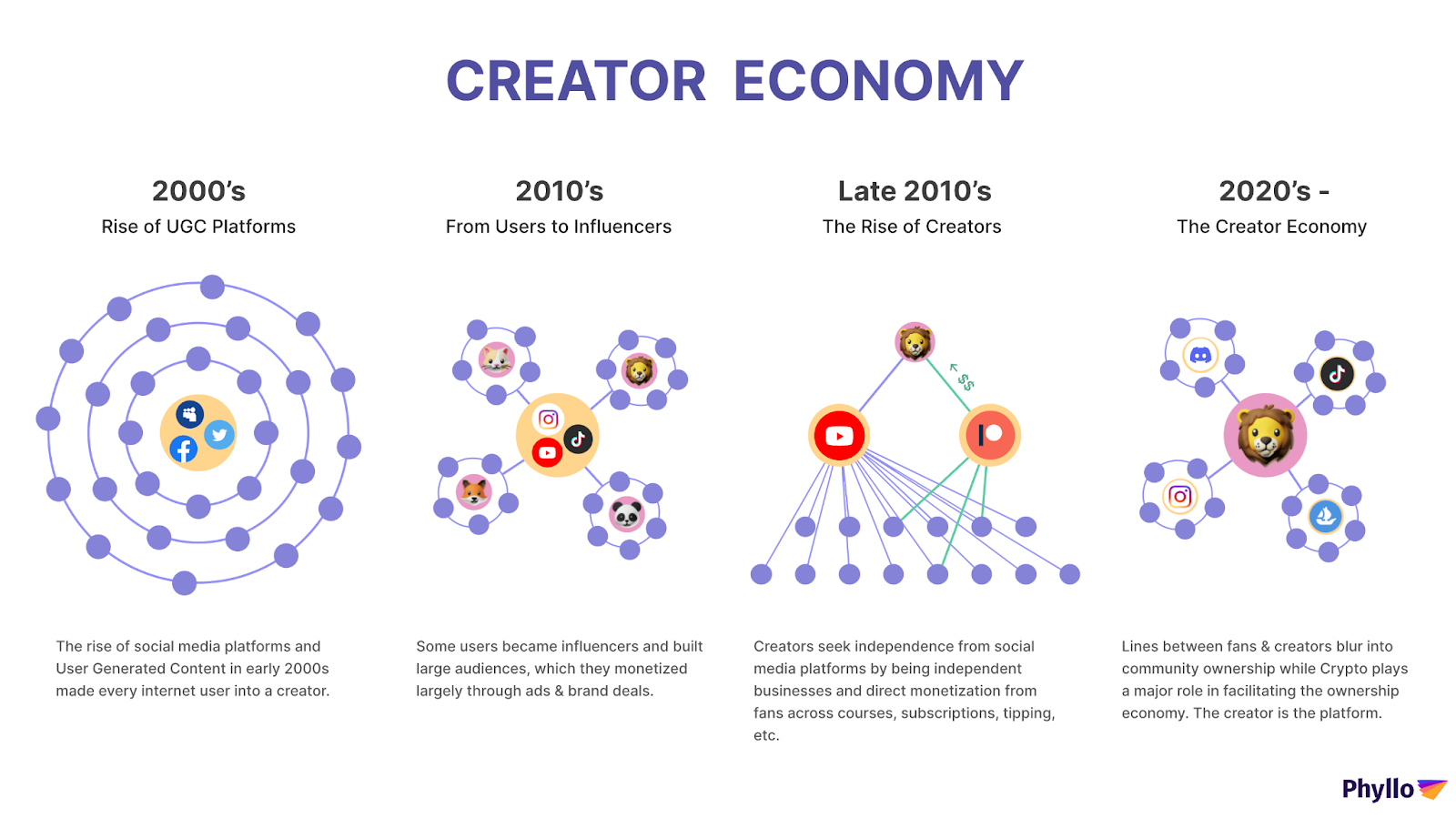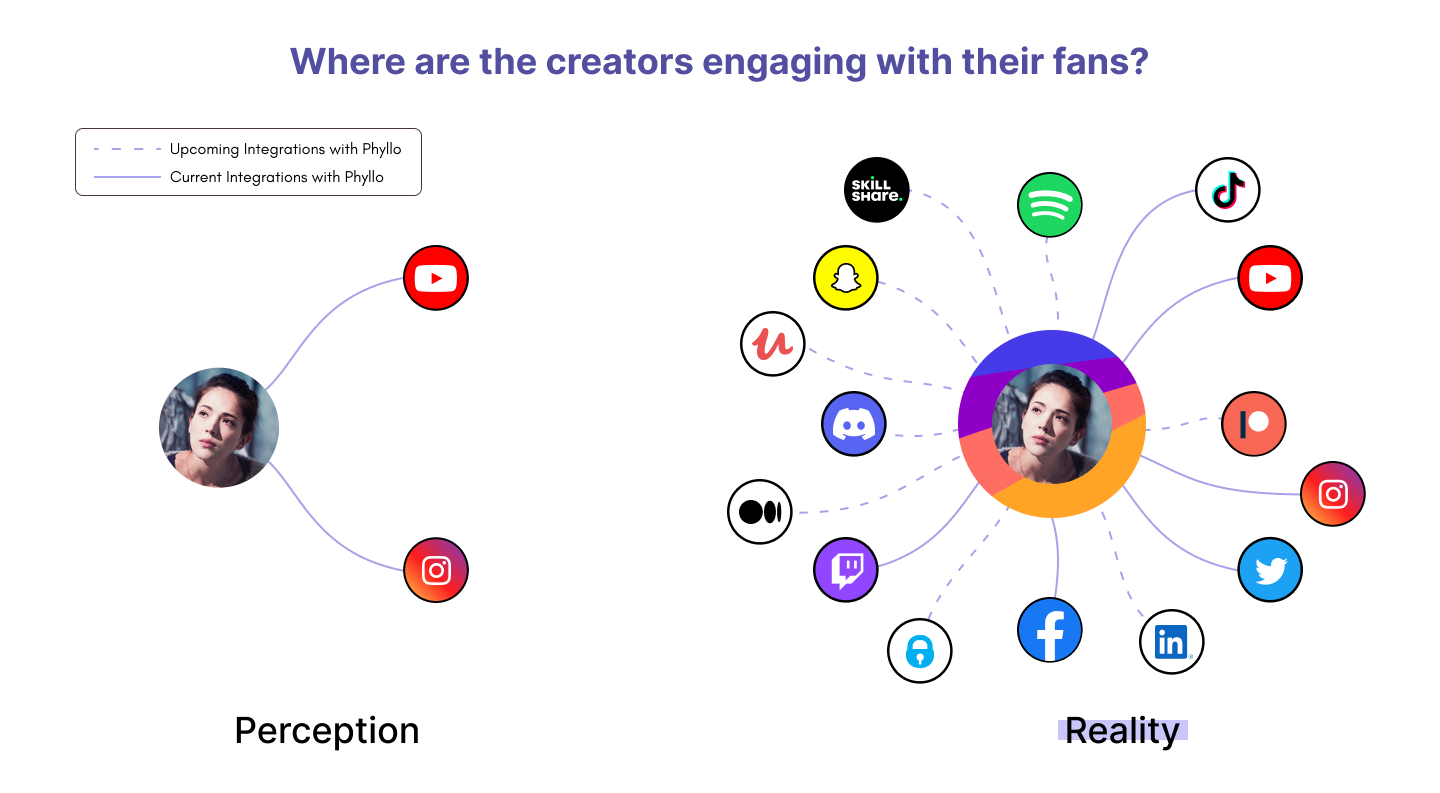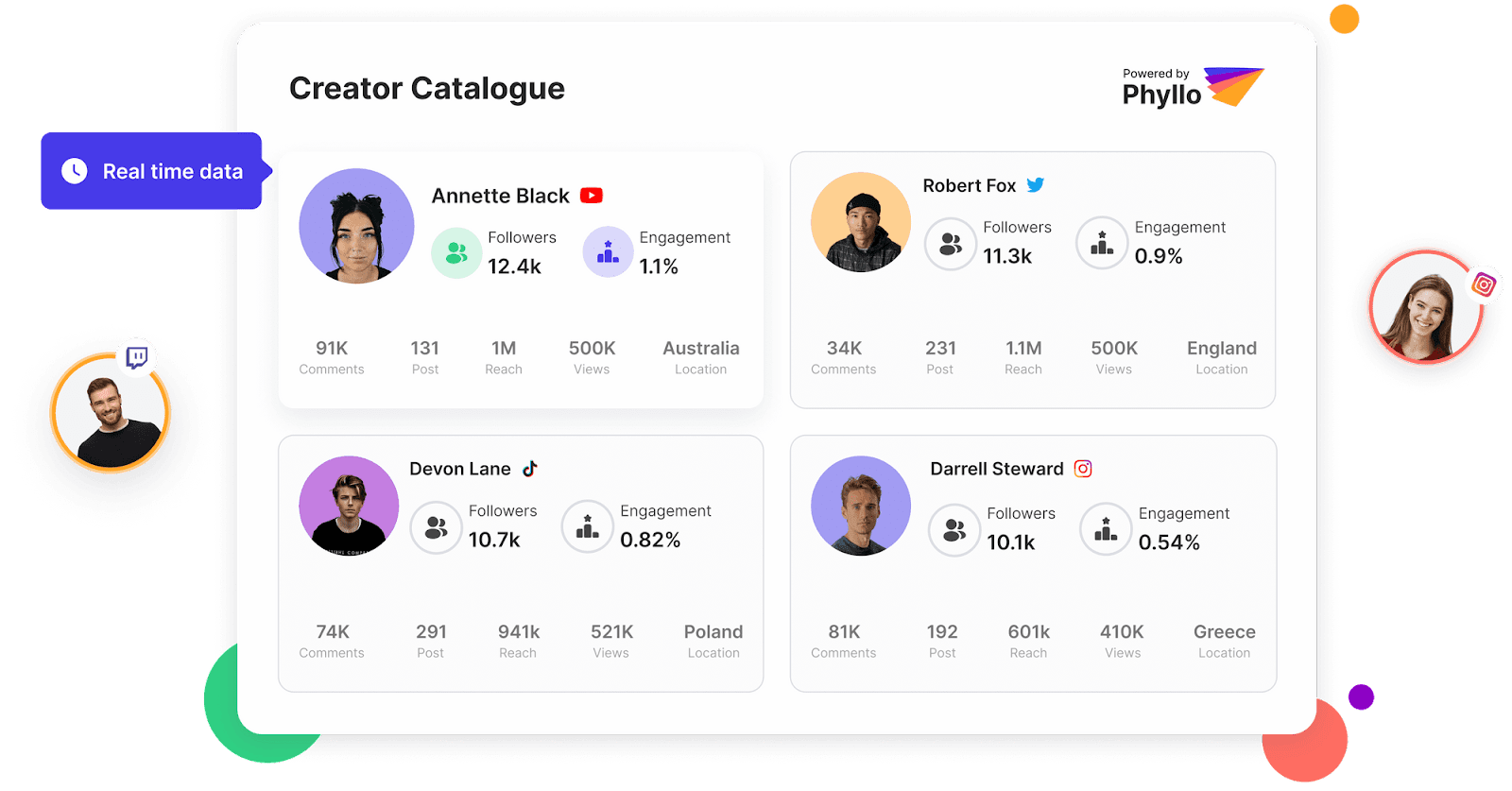Influencer marketing has become a central part of many brands’ marketing strategies. As a result, there has been an influx of new-age platforms entering the market, offering to help improve influencer marketing effectiveness.
And as this industry grows, so will its challenges.
Here we have listed some key challenges that influencer marketing platforms may face in the coming years.
1. Rapid growth

In just a few years, this new form of advertising has gone from being virtually unknown to one of the most potent forms of marketing available today.
As a result, you will need to ensure that your influencer marketing platform keeps up with this growth by offering all the necessary features to support large and small campaigns. These could include features like search and discovery, ROI analysis, campaign management, etc.

Nevertheless, your growth shouldn't come at a hefty cost, like mishandling creator data or privacy.
Related Read: Measuring Influencer Marketing ROI
2. Easy access to creator-consented data

The lack of data standards across the industry means that marketers often struggle with accessing usable data from different platforms.
This poses problems such as -
- Verifying the creator’s identity: With millions of creators showing interest in campaigns, Influencer Marketing platforms should be able to verify that the creator is who they say they are.
- Providing authentic data to brands: Getting trustworthy data on creators is critical as campaign selection criteria, success parameters, and creator payments rely on it. With a surge in the number of creators and their distribution across newer channels, getting this data has become extremely difficult.
- Third-party data agencies and data scrappers have repeatedly failed influencer marketing platforms:
- They are unreliable as many platforms, such as Meta, discourage scrapping. Hence high chance that the data quality is irregular
- They provide only publicly visible data, not private information such as post impressions, which is an essential metric for many brand engagement/CPM calculations
- Do not provide trusted audience demographics directly from the underlying platform, as this data is private to the creator. Hence audience profiles are approximations and vary from one third-party provider to another for the same creator
- Data Authenticity can be the actual moat for influencer marketing platforms. The more trusted the data, the lesser conflict with brands and creators, leading to better players joining the platform and attracting more brands and creators, respectively. This can transition into actual network effects.
3. Finding the right influencers for a campaign

Identifying the right influencers to partner with for a brand's campaign can be a challenge. Influencer marketing platforms must have a robust influencer search and discovery system for matching brands with influencers who align with the brand’s values and target audience.
4. Fraud detection
With so much money being spent on this type of advertising, it's essential to ensure that one isn’t investing in fake accounts and bots.
With the rise of new tools that allow anyone to buy fake followers and likes, brands find it increasingly difficult to identify whether an influencer has a real following. This makes it easy for marketers to get duped into working with “influencers” who don’t have an active audience or, worse — those who are paid by other companies to promote rival products!
Read more: Scams In The Creator Economy, And How Can Platforms Prevent Them?
5. Measuring the effectiveness of influencer marketing campaigns

One of the biggest challenges for influencer marketing platforms is determining the true impact of influencer campaigns on brand awareness and sales.
It can be difficult to accurately track the number of people who have seen an influencer's content, let alone the number of people who have been influenced by it.
This can make it challenging for brands to determine the ROI of their influencer marketing efforts.
6. Managing the relationship between brands and influencers
Influencer marketing platforms also need to manage the relationship between brands and influencers, which can be complex. This includes negotiating contracts, setting expectations, and resolving any issues that may arise during a campaign.
This, again, can be challenging, as influencers are independent contractors who may have different expectations and requirements.
7. Dealing with changing algorithms on social media platforms

Social media algorithms constantly evolve.
These changes can have a significant impact on how influencer marketing campaigns are executed and the effectiveness of these campaigns.
Influencer marketing platforms must be able to quickly and effectively respond to changes in the algorithms to ensure that influencer partnerships are optimized, and campaigns are as effective as possible. This can be a complex and time-consuming process, and it requires a deep understanding of the algorithms and how they impact the performance of influencer partnerships.
8. Adhering to regulatory requirements
Influencer marketing is a rapidly evolving industry. Many platforms operate in a regulatory gray area, with unclear guidelines and rules governing how influencers and brands engage with one another.
And due to this, we now see newer regulations, rules, and laws being passed for influencer marketing almost daily. These include regulatory requirements, such as the Federal Trade Commission (FTC) guidelines on disclosing sponsored content.
Added to this, different countries and regions have different protocols.
Influencer marketing platforms must carefully monitor and enforce compliance with relevant laws and regulations to overcome this challenge.
9. Advertiser accessibility
Brands are starting to demand more control over how their campaigns are executed — especially when it comes to vetting influencers and ensuring that they're delivering ROI for clients' ad spend.
This means that platforms will need more transparency around how exactly they choose their influencers, how much they pay them, and how those payments are distributed. They will also need detailed policies on brand safety and avoidance of association with controversial influencers.
10. Automation
Automation has become an increasingly prevalent aspect of influencer marketing platforms, with many of these platforms incorporating automation tools and algorithms to streamline the process of finding and engaging with influencers. While these tools can be beneficial in terms of efficiency and cost-effectiveness, they also pose a significant challenge for influencer marketing platforms in the future.
One of the key challenges of automation in influencer marketing is its potential to undermine the authenticity and credibility of influencer partnerships. As automation tools become more advanced, it becomes increasingly more work for brands and influencers to differentiate between genuine, organic partnerships and those facilitated by automated processes.
This can lead to a lack of trust and credibility in the influencer partnerships, which can ultimately damage the reputation of the platform and the influencers themselves.
Another challenge of automation in influencer marketing is its potential to limit the creativity and individuality of influencer campaigns.
Automation tools are designed to identify influencers based on specific criteria, such as their reach and engagement rates, which can result in a lack of diversity and originality in the influencers selected for campaigns. This can lead to a lack of authenticity and relevance in influencer partnerships, which can ultimately impact the effectiveness of the campaigns.
Overall, automation is one of the critical challenges facing influencer marketing platforms in the future. While automation tools can be beneficial in terms of efficiency and cost-effectiveness, they pose significant challenges regarding authenticity, credibility, and originality. To overcome these challenges, influencer marketing platforms must carefully balance automation with more traditional, human-led approaches to influencer partnerships.
The influencer marketing space needs scalable, flexible, and reliable core technology
This is precisely why we built (and continue to build) Phyllo. We want you to get continuous access to verified, creator-consented data across hundreds of platforms without much hassle so you can focus on building your successful influencer marketing platform to empower this new and budding ecosystem.
Read more: Build vs. Buy - Social Media API Integrations For The Creator Economy

Schedule a call with us to learn more about how Phyllo can empower your business in the creator economy.
Want to test the waters before you go ahead? Sign up for a free account to access creator data with Phyllo APIs.

.avif)







